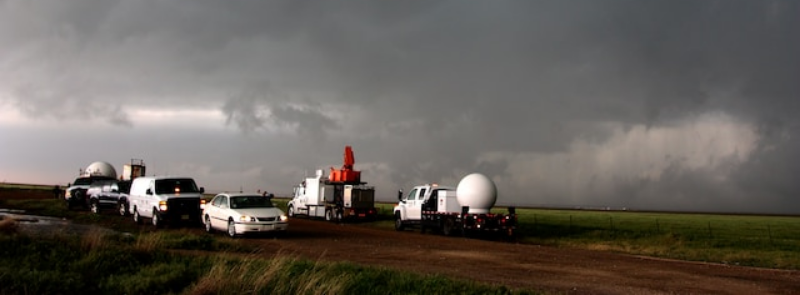
When It Occurs
Every May 4th
Official Website
Timeline
Days Passed (1025)
# Hashtags
#NationalWeatherObserversDay #NationalWeatherService
On May 4, celebrate National Weather Observers Day and express appreciation for the diligent individuals who contribute to keeping us well-informed about the weather. Originating in 1939, this day was established to honor those who have dedicated their lives to comprehending and predicting changes in our planet's environment. Weather observers play a crucial role in providing us with accurate forecasts, allowing us to plan our activities effectively. Take a moment this May 4th to express gratitude to these essential members of our society!
Purpose of National Weather Observers Day
The primary goal of National Weather Observers Day is to acknowledge the contributions of both amateur and professional weather observers. These individuals collect weather data such as temperature, precipitation, wind speed, and cloud cover, helping to build a better understanding of local and global weather patterns.
Weather observers range from professionals working for agencies like the National Weather Service (NWS) to enthusiasts who volunteer for programs such as CoCoRaHS (Community Collaborative Rain, Hail, and Snow Network) and SKYWARN (a volunteer program from the National Oceanic and Atmospheric Administration or NOAA).
Role of Weather Observers
Weather observers are essential for various reasons:
- Accurate Data Collection: Weather observers provide real-time data, which is vital for developing accurate weather forecasts and models. This information is often used by government agencies, meteorologists, and researchers.
- Early Warning for Severe Weather: Many observers participate in programs that focus on spotting early signs of severe weather, such as thunderstorms, tornadoes, and hurricanes. Their reports can prompt warnings that save lives.
- Tracking Climate Changes: By collecting long-term data, weather observers help in the study of climate change, providing insights into how weather patterns evolve over time.
- Public Safety: Observations help ensure public safety by providing information that can lead to timely warnings about natural disasters, including floods, blizzards, and heatwaves.
Celebrating National Weather Observers Day
There are many ways to participate in and celebrate National Weather Observers Day, depending on your level of interest and involvement in weather observation.
1. Become a Weather Observer
- Join a Weather Network: Enthusiasts can participate in weather observation by joining volunteer networks like CoCoRaHS, which encourages citizens to report precipitation data. Another option is SKYWARN, a program where trained volunteers report hazardous weather conditions to the NWS.
- Start Your Own Weather Station: If you’re passionate about weather, consider setting up a personal weather station at home. There are many affordable and accessible tools available to help track weather conditions such as temperature, humidity, and barometric pressure.
2. Learn About Weather Observation
- Attend a Meteorology Workshop: Many meteorological organizations offer workshops and training programs for aspiring weather observers. These workshops teach essential skills in weather observation, data collection, and weather spotting.
- Read About Weather Science: Dive into books, documentaries, or online courses about meteorology, weather forecasting, and climate science. Learning about weather can deepen your appreciation for the work done by observers.
3. Appreciate the Work of Weather Observers
- Follow Local Weather Reports: Many local weather reports rely on data from volunteer observers. On this day, take the time to acknowledge their contributions by following your local weather channels and appreciating the accuracy of the forecasts provided.
- Share the Importance of Weather Observation: Use social media or community platforms to spread awareness about the important role weather observers play in keeping people safe from severe weather. You can share articles, facts, or information about weather networks and observation tools.
4. Educate the Next Generation
- Introduce Children to Meteorology: Engage kids in weather observation by teaching them how to track daily temperatures, look at cloud patterns, or measure rainfall using simple tools like rain gauges.
- Host a Weather-Themed Event: Schools or communities can host events where participants learn about weather phenomena, how forecasts are made, and how to stay safe during severe weather events.
Fun Facts About Weather Observers
- Weather Observing Tools: Instruments like barometers (for air pressure), anemometers (for wind speed), and hygrometers (for humidity) are commonly used by both amateur and professional weather observers.
- Historical Weather Observations: Weather observation has been practiced for centuries. The first systematic weather observations were made by individuals like Luke Howard, who classified cloud types in the early 19th century.
- Amateur Observers: Thousands of amateur weather observers across the U.S. contribute to daily weather reports. Many do this as a hobby or volunteer effort, playing a key role in the accuracy of local weather forecasting.
The Importance of Weather Observation
Weather observation is not just about day-to-day forecasts. It is a critical component in understanding broader environmental and climatic changes. Observers contribute to long-term studies on global warming, droughts, and natural disasters. The data they provide can also help in improving agriculture, aviation safety, and infrastructure planning.
Conclusion
National Weather Observers Day is a day to celebrate the dedication and work of both professional and amateur weather observers. Their contributions help ensure accurate weather predictions, track climate change, and provide warnings for severe weather events. Whether you're an aspiring observer or simply appreciate the work they do, this day offers an opportunity to reflect on the vital role weather observation plays in our daily lives.


